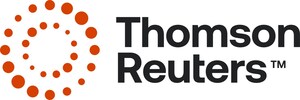Patent professionals see 2015 growth in licensing revenues according to LES France and Thomson Reuters study
- French innovation study shows senior intellectual property professionals look for new partnerships to increase revenue
PARIS, May 5, 2015 /PRNewswire/ -- Licensing Executives Society France (LES France), an association of professionals who have an interest in technology transfer or licensing intellectual property (IP) rights, and the Intellectual Property & Science business of Thomson Reuters, the world's leading source of intelligent information for businesses and professionals, today released findings from a joint study revealing the state of IP licensing practices in France. This market accounted for 10.8 billion Euros in reported revenues in France in 2013[1].
The study's results feature trends, practices and motivations behind IP licensing, as reported by senior IP professionals across the country.
Key findings of the study include:
- Positive outlook for licensing revenues: Licensing revenues will remain stable or grow in 2015 according to 68% of respondents.
- Licensing supports research and development: Across all industries of those surveyed, 91% of respondents cited forging partnerships as a principal reason for conducting licensing as well as supporting research and development (89%), and increasing revenue for organizations (79%).
- Unified Patent Court: 74% of respondents believe the proposed Unified Patent Court is favorable to patent holders. It is believed that a Unified Patent Court will facilitate the enforcement of licensing programs across Europe.
- Patent trolls not prevalent in French market: Overall, 80% of all respondents indicated that the activity of Non-Practicing Entities (NPE) had not affected their organizations. Those interviewed indicate that the sum of damages that can be obtained in France are not as lucrative as in the United States.
- Digital technology impacting innovation across industries beyond hi-tech: The dissemination of Information and Communication Technologies (ICT) to new industries brings challenges and a convergence of licensing practices. There has been double digit growth (16%) in high-tech ICT patent filings in industries such as pharmaceutical, food, and cosmetics in the last 10 years.
"Thomson Reuters is proud to collaborate with LES France for this important piece of research," said Stuart Recher, vice president, IP Services at Thomson Reuters. "The commercialization of intellectual property offers new revenue streams and paths to market for innovative companies. We hope this study provides deeper insight into the challenges licensing professionals face and enables the development of licensing practices in France and around the world."
To read the full report, visit: http://ip-science.interest.thomsonreuters.com/IPLicencingFrance
Methodology
The methodology of this study is based on an online questionnaire sent to 600 licensing professionals, telephone interviews with senior IP professionals in French, and an analysis of patent literature found in Thomson Reuters Derwent World Patents Index (DWPI).
About Licensing Executives Society France
LES France is a member of Licensing Executives Society International, a global network of more than 9,000 members covering 65 countries. The association brings together professionals in intellectual property and valuation (licensing and technology transfer). Established in 1970, LES France develops its activities with community members operating in France, and has about 600 members.
About Thomson Reuters
Thomson Reuters is the world's leading source of intelligent information for businesses and professionals. We combine industry expertise with innovative technology to deliver critical information to leading decision makers in the financial and risk, legal, tax and accounting, intellectual property and science and media markets, powered by the world's most trusted news organization. For more information, go to www.thomsonreuters.com.
[1] Charges for the use of IP are payments and receipts between residents and non residents for the authorized use of proprietary rights (such as patents, trademarks, copyrights, industrial processes and designs including trade secrets, and franchises), through licensing agreements, WorldBank.org [accessed 14 April 2015].



Share this article